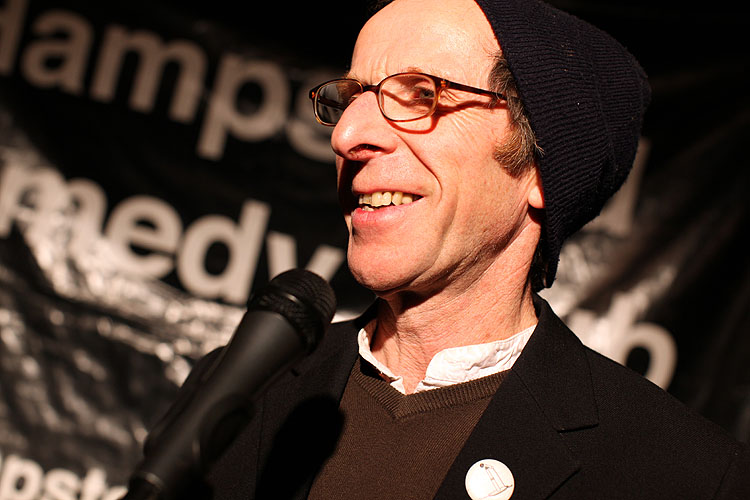Interview with Stand-Up Ivor Dembina
Article published: Thursday, October 27th 2011
Ivor Dembina has been doing stand-up of over 20 years. He has a reputation for using gentle Jewish comedy to tackle serious issues, such as his 2010 show This Is Not A Subject For Comedy which took on the Israel-Palestine conflict. Manchester Mule briefly caught up with Ivor ahead of two gigs he is performing this coming weekend as part of the Mancheser Comedy Festival.
 How did you get into stand-up comedy in the first place?
How did you get into stand-up comedy in the first place?
I started by hosting my own small club north London, introducing people who were later to become household names like Ben Elton, Jo Brand and Eddie Izzard. Decided I enjoyed the performing as much as the organising and wrote a club act of my own. It wasn’t very good!
In what way was your material influenced by your experiences in the West Bank?
By the time I visited Israel and the West Bank I’d moved on from club comedy to doing solo shows. I was much more successful in the solo arena and discovered that most of my best comedy was connected to being Jewish. I’m immensely proud of that heritage, but I’ve always had deep seated political interests too. Hence my interest in the Middle East conflict and I wanted to express my reaction to express my feelings to Israel’s diabolical behaviour in the region in the best way I could, through being funny.
Tell us a little about the new show you’re doing here, what should people expect and what you hope people will take away from it?
In Manchester I’ll be performing an adaptation of the show I performed in Edinburgh 2011. Its a compilation of my favourite Jewish material that I’ve come up with over the years including not just issue stuff like Israel and anti-Semitism, but personal stuff too on subjects like family and relationships. What I do is use the traditional flavour of great Jewish humour to talk about anything that concerns me and I think will interest whoever comes along to see me. Everyone is welcome and everyone will get it.
Obviously bits of your comedy cover some very sensitive issues, what sort of reactions have you had from it during your career, positive and negative?
Some Jewish people say they don’t like my comedy because they find it too critical of Israel. But it’s difficult to laugh at jokes when your hands are over your ears. Others love it. They sidle up to you afterwards and quietly tell you in hushed tones that its exactly what they think, but they can’t speak out because they’re afraid of ‘upsetting the community’.
You did a show in the House of Commons once, how did that come about?
I was invited by an MP who’d been to Gaza and seen the carnage on the ground to bring the show in. It was an opportunity for his fellow Parliamentarians to see that not all Jewish people slavishly follow the propaganda they’re fed by their own community’s establishment.
What role do you think stand-up comedy can play in such huge and polarising issues as the Israel-Palestine conflict, and why do you think it’s effective?
People laugh when they hear true things, and the best stand-up comedy deals in truth and little else. Its as simple as that. I understand the people who dislike my comedy, because when I was young I used to think exactly the same as them, but as I got older I got a bit naughty, and started to think for myself.
Ivor Dembina’s show, Stand-Up Jewish Comedy, is on at Apotheca Restaurant and Cocktail Bar in the Northern Quarter on Sunday 30 October. There will be two performances, one starting at 5pm and the other at 8.15pm. Tickets are £7 and can be purchased through the Manchester Comedy Festival website.
More: Culture, Manchester, Stage
Comments
-
I don’t agree with Mr Dembina’s views on the Israel/Palestine question.
Good for him. He has the free speech guaranteed by Israel and other democracies.
Why don’t we hear too much from people in other countries from Mr Dembina’s part of the world who don’t toe the government line?
No answers on a postcard please. We all know why.
Anmyone up for a discussion of womens’s, gay or trade union rights in Arab countries? Or a free press in such places?
Comment by simon on November 1, 2011 at 9:49 pm
The comments are closed.



